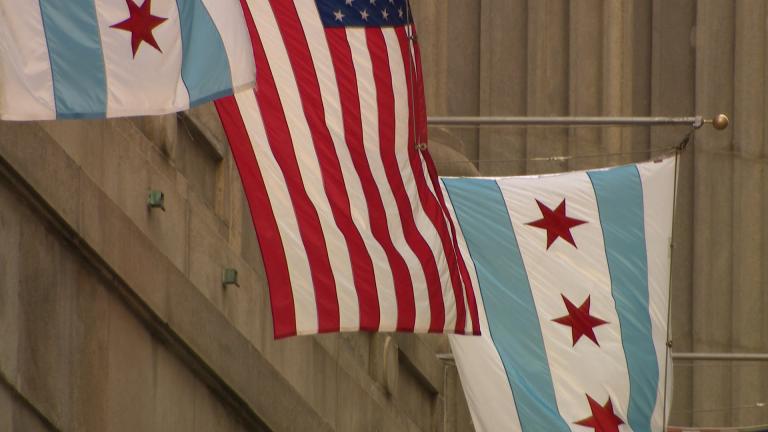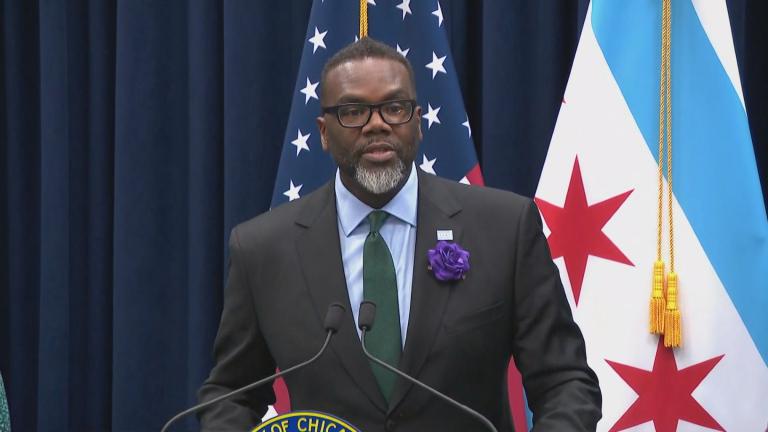Two key initiatives of Mayor Lori Lightfoot were put to the test Wednesday, and the unanimous passage of each shows that Chicago’s new mayor has command over City Council.
The first, called the Fair Workweek Ordinance, has been in the works for a couple of years, but sponsors of the ordinance credit the new mayor with ushering it across the finish line.
The ordinance stipulates that, starting next year, larger employers in Chicago have to set employee work schedules 10 days in advance. In 2022, the rule extends to 14 days in advance. Employers who don’t comply have to pay employees extra for scheduling changes or cancellations that occur within that timeframe. Employees also cannot be scheduled within 10 hours of their most recent shift. The new rule applies to employees who earn less than $50,000 a year or $26 an hour or less. There’s also an opt-out clause: employers and employees can chose to bypass the restrictions if they agree to do so in writing or through a union collective bargaining agreement.
Labor and business groups, like the Illinois Restaurant Association, worked together on the terms of the ordinance.
“We’d rather be at the table than on the table,” said IRA President Sam Toia. “This is a great ordinance, we worked on it, we got to a place where business and labor can live with this and we can keep growing the restaurant community in the culinary capitol of the United States.”
But that opt-out compromise begs the question: If employees and employers can agree to opt out of these new rules, what’s to stop a manager from pressuring an employee to do so?
“There’s things that are built into this ordinance to allow an employee to use his own preference,” said Bob Reiter, president of the Chicago Federation of Labor, a group strongly backing the ordinance. “But if we see a pattern of employers intimidating their employees to sign away their rights, we’re going to fight that vigorously. And that’s going to open up the employer to a lot of liability to a pattern and practice of violating the ordinance.”
ETHICS REFORM
Lightfoot also scored a 50-0 vote Wednesday on her ethics reform initiatives.
This new round of reforms calls for a few things. First, it empowers the inspector general to investigation City Council committees – a proposal Ald. Ed Burke fought hard to defeat years ago when he was chairman of the Finance Committee. It also increases fines on ethics violators. And it prohibits council members from holding outside jobs that conflict with their duties as public servants – namely, serving as a property tax appeals lawyer. This provision is inspired by the investigation of Burke, who is facing a 14-count federal indictment and has long been accused of using his powerful City Council perch to win business for his private property tax appeal firm, Klafter and Burke. When his firm wins property tax reductions for his clients, it means other Chicagoans pay more. Under the new rules, Burke would ostensibly have to choose between being associated with his firm or being an alderman, or else face daily fines for violating the ordinance.
“The rules are very clear on what we passed, and if there’s a violation it’ll be referred to the board of ethics, and if there’s a need for investigation, they’ll bring in the resources of the inspector general,” Lightfoot said. “But the rules are very clear that you may not have employment, or an economic relationship that is in conflict with your first priority, which is to serve the people.”
Burke did not make himself available to reporters Wednesday.
In other ethics action, Lightfoot proposed allowing the inspector general to release reports to the public if they involve conduct that resulted in a death or a severe felony. Right now, the inspector general can’t necessarily release the details of its reports unless the agency it’s investigating agrees to it.
Follow Paris Schutz on Twitter: @paschutz
Related stories:
Aldermen Weigh in on Chicago Casino Locations, City Labor Law
Chicago Mayor, Clerk Move to Lighten ‘Crushing’ Vehicle Fines
Mayor, Aldermen Negotiate Fair Workweek Ordinance








